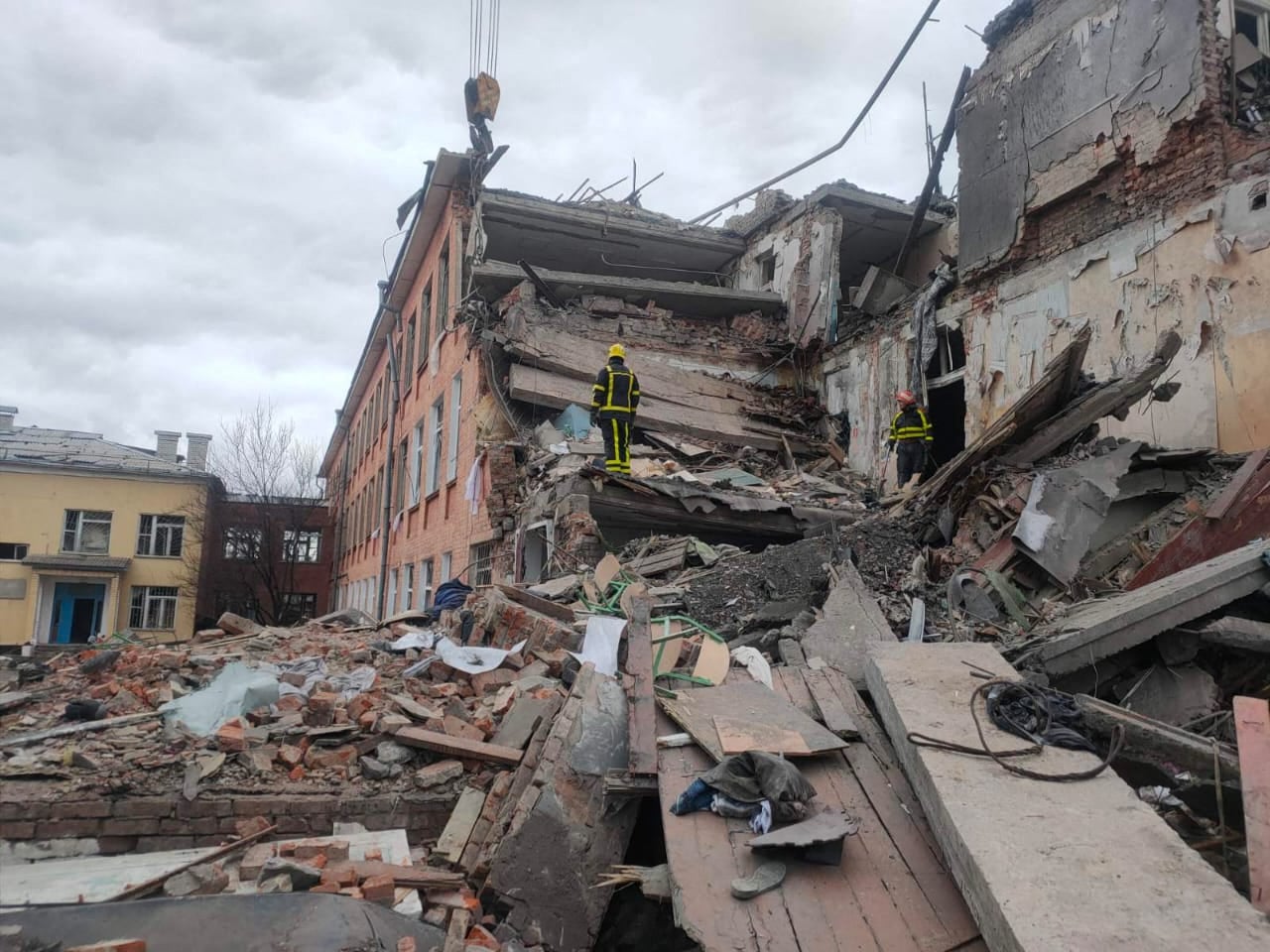Is this Europe’s war – or are we facing WWIII?
Putin’s weakness is his strength. However remote the risk – and we have to believe it is very remote – we must factor in the possibility that he tries to take us all with him


There is a parallel universe. While we hear about the mind-numbing horrors of the Russian bombardment of Ukrainian cities, there is also cheerful news about British athletes winning medals in the Beijing Paralympic Winter Games. Manchester United is up against Manchester City. There is a devastating war in Eastern Europe, but the rest of the world goes about its business and pleasures. So far.
Pessimists remind us of the Second World War, where Nazi Germany’s invasion of Poland and Japan’s war in China had, within two years, drawn in the Soviet Union (after Hitler launched Operation Barbarossa), and the United States (after Pearl Harbour). Optimists point to the way that post-war conflicts have been contained: Vietnam, India-Pakistan, Arab-Israel and the civil wars in Yugoslavia, the Middle East and Africa. So, which way will today’s war in Ukraine go?
A key factor will be how long the war lasts. It is possible that the shambolic Russian organisation, poor troop morale, fierce and brave Ukrainian resistance and painful sanctions will lead to Putin seeking a face-saving exit. Alternatively, his colleagues and his army officers may yet pluck up the courage to depose him. But there is little sign of either happening; more, a determination to double down.
The war could now deepen and widen. The deepening would take the form of battering Ukraine’s cities into submission. The attack on Kyiv, as with Odesa and Lviv, has scarcely begun. Civilian casualties will mount and will be actively targeted. Putin has no reputation left to lose. Syria is a template for this kind of brutal warfare.
The Ukrainians are understandably trying to widen the war, bringing in Nato on their side. Hence the demand for “no-fly zones” which could only be enforced by Nato combat aircraft. Nato is, equally understandably, resisting direct military confrontation. The stand-off is unstable with the Russians abusing their freedom to operate with impunity, and Western public opinion demanding governments should “do more”.
Nato is now making available more and better military equipment instead of troops, but a point could soon be reached where boundaries are blurred. The Russians may claim Nato jets are Nato jets even if the pilots are Ukrainian. They could try to widen the conflict by attacking Moldova which already has a Russian enclave. There is much scope for mischief and misunderstanding in the Kaliningrad area of Russia.
Underlying massive, global anxiety are nuclear weapons. Putin has already broken the taboo by his troops showing a cavalier disregard for nuclear safety and by raising the issue of “strategic weapons readiness”.
Any direct Nato engagement would likely raise the issue of the circumstances under which “battlefield” nuclear weapons are employed and subsequent escalation. Putin’s weakness is his strength. There is the terrifying prospect that, with his back to the wall, he will lash out using any weapon available. However remote the risk – and we have to believe it is very remote – we must factor in the possibility that he tries to take us all with him.
To keep up to speed with all the latest opinions and comment, sign up to our free weekly Voices Dispatches newsletter by clicking here
A greater risk is that economic warfare has unexpected and dangerous side effects. The USA is calling for an embargo on Russian oil: brave, as American motorists – and voters – will not be happy if petrol prices rise. A successful embargo (on top of existing sanctions on Iran and Venezuela) needs not just global compliance but a willingness of Saudi Arabia to forgo its market management agreement with Russia. The Saudis will play ball but there will be a political price: turning a blind eye to human rights abuses in the Kingdom and Yemen.
If there is an oil blockade, a gas blockade may follow. But gas supplies are inflexible in the short run. There would be a scramble for scarce reserves of liquid natural gas, and those with deep pockets (read: China) would corner the market, escalating prices. In a blow to the world’s “net zero” efforts, coal could see a renaissance.
Meanwhile, alarm is already growing over supply shortages of grain because Ukraine, Russia and Kazakhstan are major producers. Rising food prices are bad news especially for big importers, such as Egypt, and for poor people everywhere. In economic warfare, those who suffer most are at the bottom of the food chain.
Nonetheless, we have no alternative but to make sanctions against the Russian economy work. A reality not yet realised in the west is that doing so will require cooperation, in particular, from China. It will be critical to persuade Beijing that their interest is in continued integration with the global economy, not in “everlasting friendship” with a pariah state.
Those who regard such engagement as supping with the devil should remember that we prevailed in the Second World War with the assistance of Joseph Stalin. In Putin’s war, similar pragmatism is required.
Sir Vince Cable’s podcast, Cable Comments with Vince Cable, is available here
Join our commenting forum
Join thought-provoking conversations, follow other Independent readers and see their replies
Comments
Bookmark popover
Removed from bookmarks